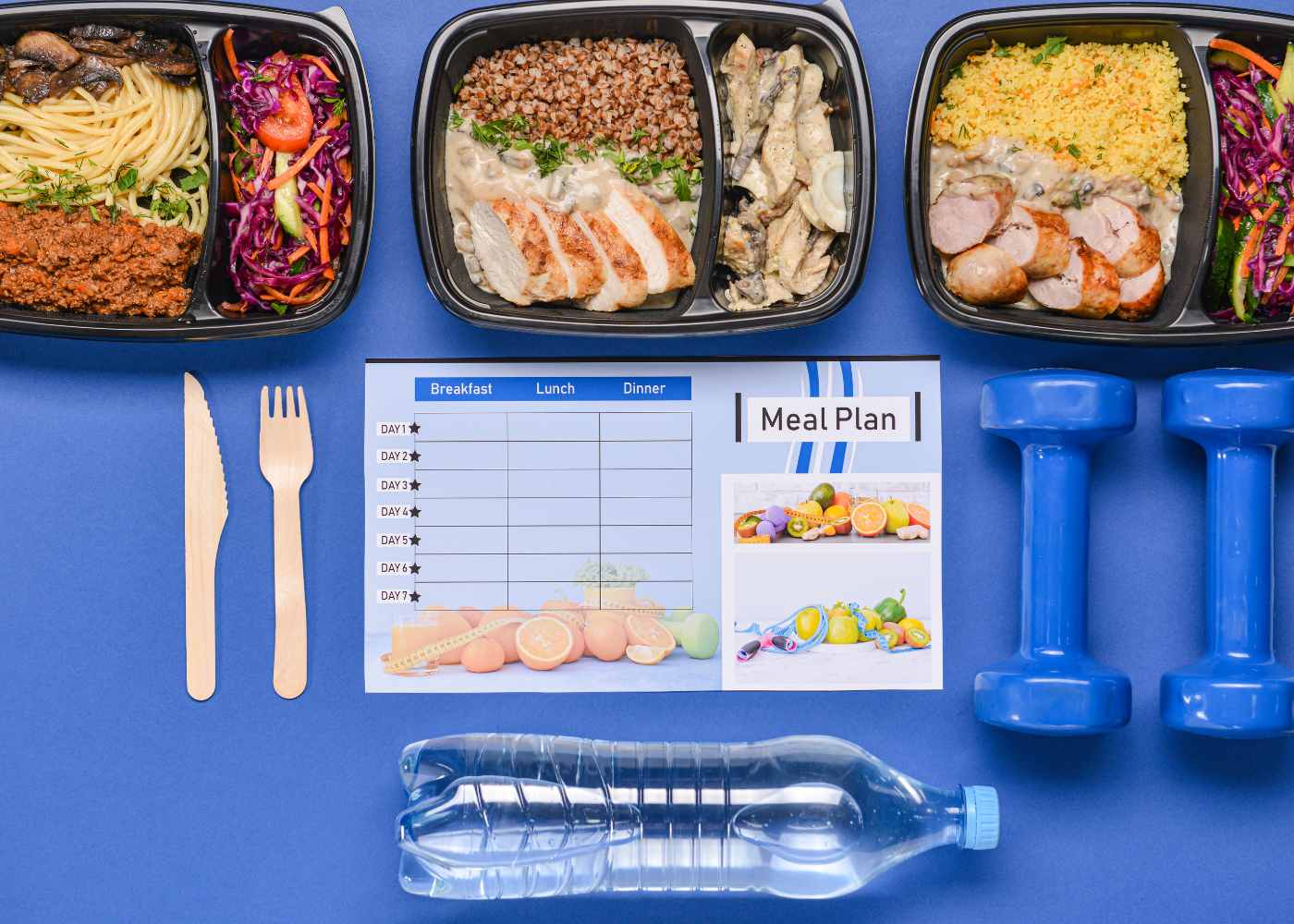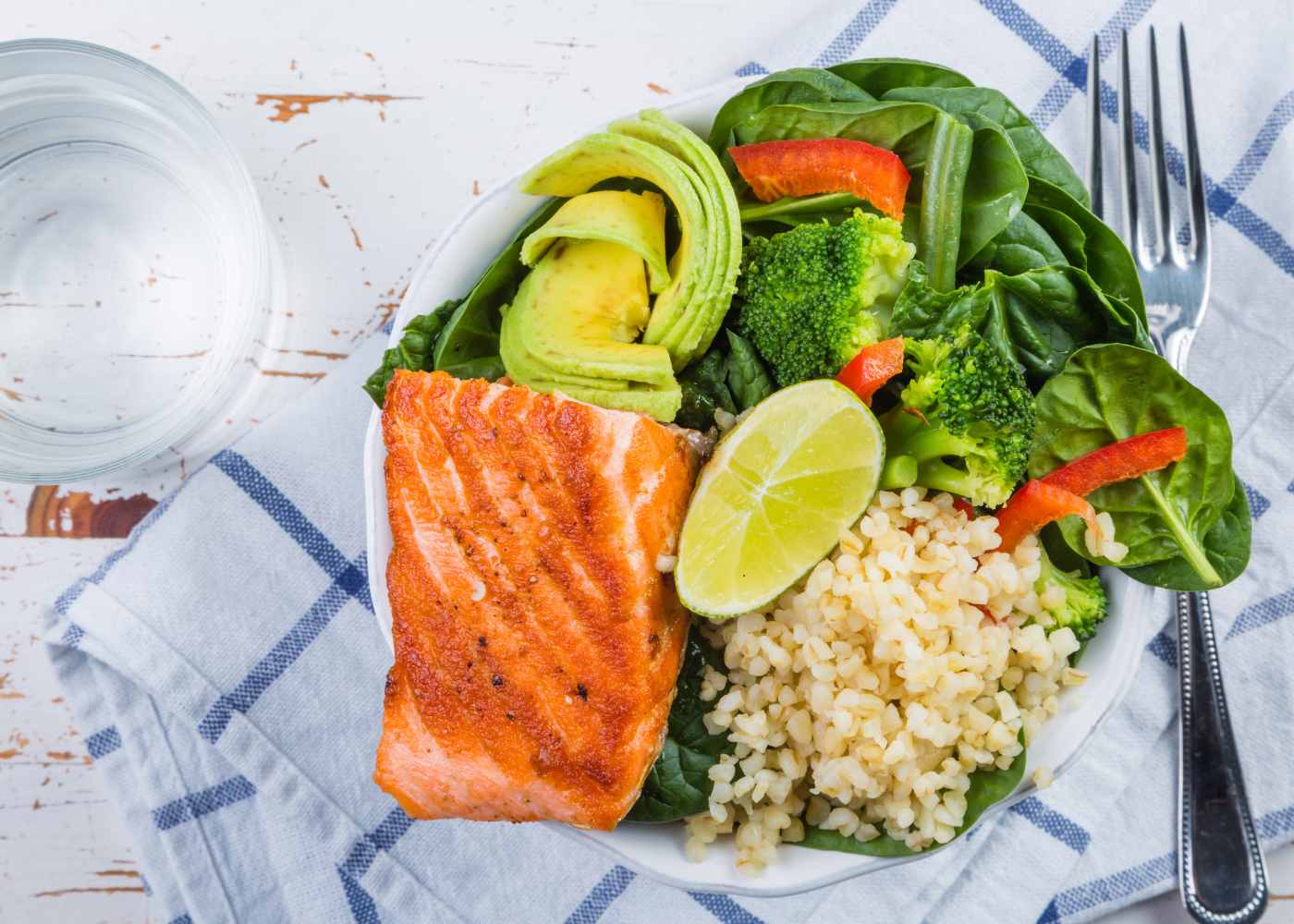
Meal planning is a strategy used to help you organize your meals and snacks for the week. It involves creating balanced, nutritious meals that are tailored to meet your individual needs. Meal planning can be beneficial for weight loss and increased energy as it helps you maintain healthy habits by preparing food ahead of time, controlling portion sizes, and making smart dietary choices when shopping or eating out. By incorporating breakfast, lunch, dinner, snacks and beverages into your meal plan in the right amounts and combinations of macronutrients (carbohydrates, proteins and fats), you can reach your health goals without feeling deprived or overwhelmed.

Understanding Nutrition
Meal planning is an important part of understanding
nutrition and maintaining a healthy lifestyle. It is essential to know the
basics of nutrition, including which food groups are necessary for balanced
meals. A well-rounded diet should include carbohydrates, proteins, fats and
micronutrients such as vitamins and minerals. Carbohydrates provide your body
with energy whereas protein helps build healthy muscles and tissues. Fats help
absorb certain vitamins along with providing long-lasting energy sources
throughout the day. Micronutrients like vitamins and minerals are found in
small amounts but they play a vital role in many bodily functions like
digestion or skin health.
When planning meals it is important to ensure that you are getting enough macronutrients to meet your individual needs while also ensuring that you have variety in what you eat on a daily basis so that you don™t become bored or burnt out with your meal plan too quickly. Planning ahead can also help save time during busy weekdays by preparing meals ahead of time or having fast options ready when needed. Additionally, meal planning allows one to stay within their budget as they will be able to buy groceries more efficiently based on their weekly menu rather than making impulsive purchases at the grocery store which can add up quickly over time if not monitored closely.

Understanding Calories
Calculating your daily caloric needs is important in
understanding calories and weight loss. To calculate your daily calorie needs,
you need to know your basal metabolic rate (BMR), which is the number of
calories your body burns at rest. Your BMR can be calculated based on age,
height, weight, and gender. Once you have determined your BMR, you then need to
calculate how many additional calories are needed for physical activity levels
each day and adjust that amount accordingly depending on if weight gain or loss
is the goal.
Once you understand how many total calories are needed per
day for desired results it then becomes important to understand what those
calories should come from as different macronutrients provide different amounts
of energy while also affecting satiety differently. For instance, a diet that
consists mainly of carbohydrates will leave one feeling hungry soon after
eating whereas a balanced meal containing both proteins and healthy fats will
help slow digestion so one feels fuller longer throughout the day. Additionally
making sure that micronutrients like vitamins and minerals are included in
every meal helps ensure overall health by providing essential nutrients
required for bodily functions such as metabolism or immune system regulation
among others.
Understanding Calories and Weight Loss goes beyond just counting them - it's about forming healthier habits through mindful eating decisions where nutrition quality matters more than quantity when possible. Making small changes over time such as adding more vegetables into meals instead of processed snacks can help towards reaching goals quicker with fewer cravings along the way due to increased nutrient density from whole foods rather than low energy-dense options. Incorporating regular physical activity alongside these lifestyle modifications can further enhance progress toward obtaining desired outcomes whether they be improved health markers or better body composition-related results.

Meal Planning Basics
When it comes to meal planning, having a plan of action is
essential. One way to get started is by creating a shopping list for the week
that includes all the ingredients you™ll need for your meals and snacks. This
can help prevent unnecessary purchases or impulse eating when grocery shopping.
It™s also important to consider how much time you have available each day to
cook as this will determine what recipes are more appropriate throughout the week.
For example, if cooking time is limited on certain days then pre-made frozen
meals might be necessary while other days could involve homemade versions.
In addition to planning out meals for the week, it's also
important to consider portion sizes and caloric needs in order to reach goals
such as weight loss. There are many tools online and apps like My Fitness Pal
which can help track nutritional information of foods eaten along with total
calories consumed per day so one can make sure they™re staying within the
calorie range they set for themselves. Additionally tracking macronutrient
ratios helps ensure that one has enough carbohydrates, proteins and fats in
their diet depending on individual activity levels and health goals.
When it comes to meal planning, it's crucial to also take into account the snacks in between. These little bites offer a chance to incorporate more nutrients throughout the day and keep hunger pangs at bay. Opt for whole food options such as nuts, fruits, and vegetables as they provide a higher level of nutritional value compared to processed snacks. Gradual and consistent improvements in eating habits can lead to sustainable changes without the need for extreme lifestyle changes all at once.

Creating a Meal Plan for Weight Loss and Increased Energy
Meal planning for weight loss and increased energy can be a
challenge, but with the right tools and strategies, it is possible to create
balanced meals that meet individual needs. It™s important to start by
understanding portion sizes as this will help determine how much of each
macronutrient should be included in each meal. A good rule of thumb is to
divide your plate into four sections - one quarter filled with lean proteins,
one quarter with complex carbohydrates such as whole grains or starchy
vegetables, and the remaining half filled with non-starchy vegetables like
leafy greens or broccoli. Additionally, snacks should consist mainly of whole food
sources rather than processed options to ensure adequate nutrition throughout
the day.
When it comes time for shopping, there are some tips and
tricks that can make grocery trips more efficient while also helping stay
within budget. For example, planning meals ahead of time allows one to create an
organized list based on needed ingredients which helps avoid buying
unnecessary items once at the store. Bulk buying certain foods when on sale is
another way to save money while stocking up on items that have longer shelf
lives such as beans or rice which can stretch further throughout multiple
dishes and last several weeks. Frozen fruits and veggies are often
cheaper alternatives compared to fresh produce if available plus they retain most
nutrients due to the minimal processing involved before being frozen making them
great options during busy weekdays when cooking may not always be feasible.
When prepping meals, it's advisable to plan for leftovers. This way, you can have convenient, reheatable lunches throughout the week without having to cook every day. By creating a meal plan, you can increase your energy levels and achieve your desired health goals while still enjoying tasty meals. This is a mutually beneficial approach that saves time and ensures that you don't deprive yourself of delicious food.

Sticking to Your Meal Plan
Having a nutritious meal plan is essential for achieving
overall health goals, such as weight loss or improved energy levels. A good
meal plan should include nutrient-dense foods that provide the body with all of
its necessary vitamins and minerals in order to function optimally.
Additionally making healthy substitutions where possible will help reduce
calorie intake while still providing adequate nutrition. For example instead of
fried chicken, try baking it in the oven and top it off with a delicious
homemade sauce.
Cooking tips are also incredibly important when sticking to
your meal plan as they can make the process much easier and more enjoyable. One
way to simplify cooking during busy weeknights is by prepping meals on Sunday so that all ingredients are already chopped up and ready to
throw into one-pot dishes for quick dinners throughout the week. Additionally
using spices like cinnamon or paprika add extra flavor without excess calories
plus herbs offer an excellent source of antioxidants helping support overall wellness.
Finally having snacks prepared ahead of time helps prevent overeating come dinner time if hunger strikes before then. A few ideas include trail mix made from nuts, seeds, and dried fruit; hummus dip with whole wheat crackers; yogurt parfait made with Greek yogurt, berries, and granola; apple slices topped with nut butter or hard-boiled eggs sprinkled with salt & pepper. All these options provide protein along with other essential nutrients.

In Summary
Having a nutritious meal plan is crucial for achieving health goals as it eliminates the uncertainty around meal choices and incorporates tasty and healthy options. Preparing food in advance saves both time and money while ensuring that healthy options are always available when required. Simple changes like substituting processed snacks with more veggies during meals can significantly enhance body composition outcomes. Additionally, smart snacking between meals can manage hunger and offer balanced options that include proteins, carbohydrates, and essential micronutrients. With appropriate tools and strategies, anyone can develop a tailored and efficient meal plan.




















